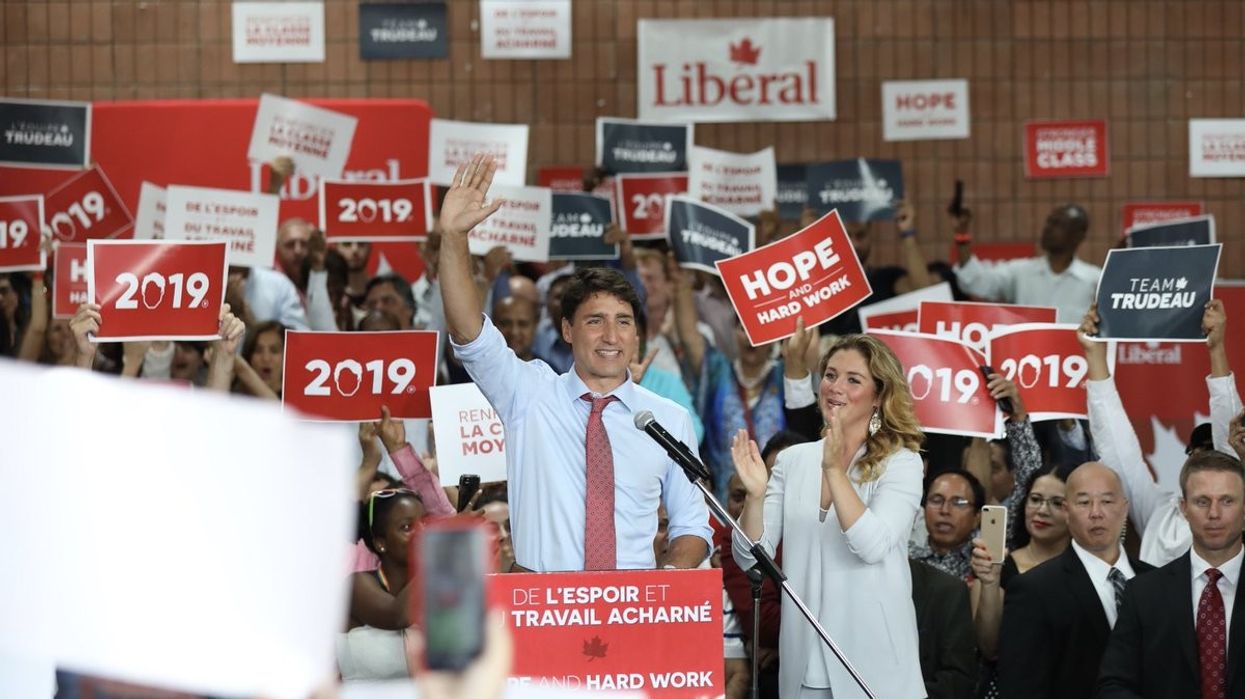The high cost of housing and the chronic problem of homelessness have become significant talking points for politicians in the current federal election.
Liberal Leader Justin Trudeau and Conservative Leader Andrew Scheer – the two men who have a real shot of becoming Canada’s next prime minister as election day draws near – have radically different ideas about how to address the problems.
READ: Housing Affordability Is A Major Election Issue For Canadians
Sheer’s policies are aimed largely at lowering the cost of construction and making mortgages easier to obtain. Trudeau would offer help to first-time homebuyers and find new ways to shelter populations that are prone to homelessness.
Earlier this year, the Liberals introduced a national housing strategy that promised spending of least $55 billion over the next 10 years to create 100,000 new homes, repair 300,000 community-housing units, and reduce chronic homelessness by 50 per cent.
“I think we’ve got a systemic foundation to, once and for all, establish federal leadership on this file and move toward the (Canada Mortgage and Housing Corporation) pledge of having all Canadians safely housed, and affordably housed, by 2030,” Adam Vaughan, the Liberal candidate in the Toronto riding of Spadina-Fort York, said in an interview.
READ: Tonight’s Historic Election Debate Makes Housing Affordability Top Priority
The Liberals say they will move forward with a new first-time homebuyers incentive that would give people up to 10 per cent off the purchase price of their first home. They also say they will impose a national tax on vacant residential properties owned by non-Canadians who don’t live in Canada, a measure aimed at real-estate speculators.
In addition, they are promising money to house homeless veterans and the urban Indigenous population, and they would address mental illnesses that keep people on the streets.
Pierre Poilievre, the Conservative candidate in the Ottawa-area riding of Carleton, told a recent debate on national housing issues that his party wants to drive down the government costs of construction.
READ: Political Promises Surrounding Housing Are Popular But Not Created Equal
“In the city of Toronto, $186,000 of the cost of an average unit of housing is the cost of government – of fees, of delays, of permits, of charges, and of other otherwise unnecessary costs that are imposed on the builder and passed onto the buyer,” said Poilievre.
Conservatives, he said, would provide cash prizes to the three Canadian municipalities that most successfully reduce the administrative and regulatory costs associated with building new units of housing.
In addition, the Conservatives say they would make it easier for first-time homebuyers to pass the mortgage stress test, increase the amortization period on insured mortgages to 30 years for first-time homebuyers, and make federal real estate available for development to increase the supply of housing.
READ: 500,000 Families Could Benefit From Jagmeet Singh’s Rental Subsidy
Kevin Lee, the CEO of the Canadian Homebuilders Association (CHA), said he is happy that housing is being recognized at the federal level.
“To have each party take a stab at what they think is the best approach to address housing affordability, particularly for first-time homeowners, is huge,” said Lee.
Michael Bourque, the chief executive officer of the Canadian Real Estate Association (CREA), said he is pleased “that all of the parties seem to have something that they have put forward in their platforms for housing affordability, and to deal with the impacts of the stress test and other demand-suppression policies.”


















